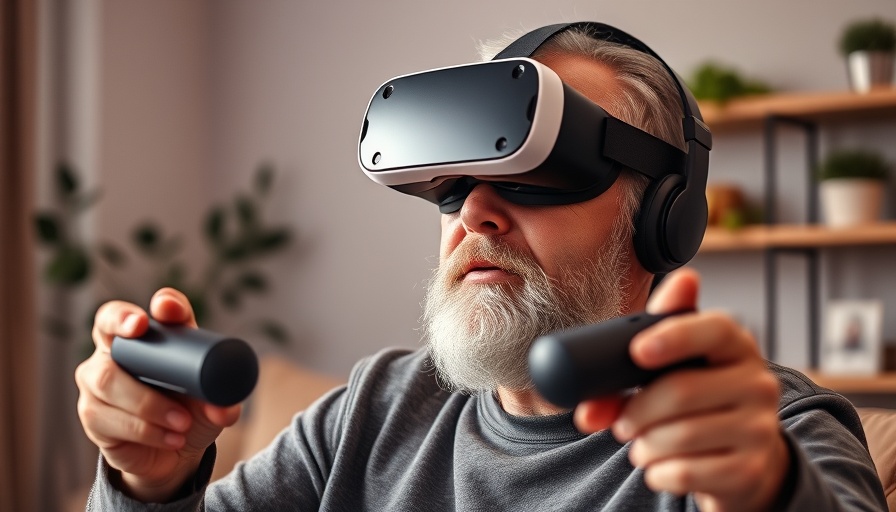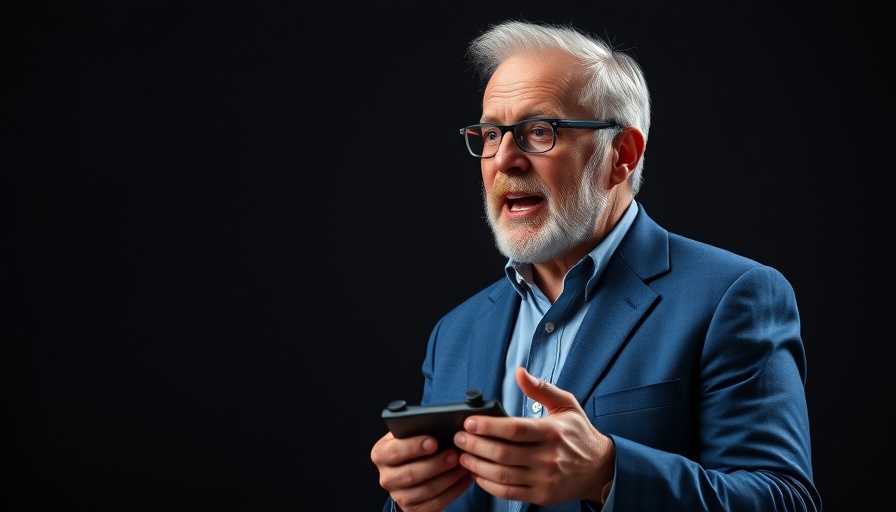
Revolutionizing Elder Care with Virtual Reality
As the landscape of healthcare evolves, embracing technology holds promise for enhancing the lives of seniors, particularly those battling dementia. Research from Texas A&M University unveils an innovative approach utilizing virtual reality (VR) to bridge the gap between loss and connection, creating a unique path for emotional rehabilitation.
The Groundbreaking Study: Methodology and Findings
Conducted under the guidance of researcher Junhyoung "Paul" Kim, this pilot study engaged 11 residents diagnosed with mild to moderate Alzheimer’s, immersing them in 20-30 minute VR sessions two times a week. Participants explored immersive environments—lush forests, sunlit meadows, and serene oceans—donning Oculus Quest 2 headsets. The results were compelling: participants exhibited heightened pleasure and alertness while simultaneously experiencing a reduction in negative feelings such as anxiety and sadness.
Nature's Therapeutic Influence on Memory
What stands out in this groundbreaking study is the emotional attachment participants formed with the environments they explored. Entering these virtual spaces led many to reminisce about cherished locations and pivotal moments in their lives. This emotional retracing highlights the power of VR to transcend physical limitations, providing a semblance of freedom in an otherwise constrained reality.
Identifying Usability Challenges
Yet, amidst these promising results, the study also flagged usability challenges inherent within VR for older adults. Participants often faced hurdles with headsets and controllers, underscoring a critical necessity for more intuitive technological solutions. It beckons a vital conversation surrounding "age-friendly" designs, ensuring that VR tools are accessible to seniors and those with cognitive impairments.
Implications for Future Health Technologies
The insights gleaned from this study could herald broader applications of VR technology across sectors related to elder care and cognitive health. Stakeholders—tech developers and caregivers alike—must pivot toward enhancing accessibility and usability of VR environments. The need for thoughtful design is paramount; innovations must address the unique challenges faced by older adults to amplify the therapeutic benefits these sessions can provide.
Call for Action: Merging Compassion with Technological Advances
As society approaches the future of an aging population, the intersection of technology and healthcare must take center stage. The findings from Texas A&M call for an urgent response from various stakeholders. Advocating for an ecosystem where technology enhances emotional health is a necessary step towards improving quality of life for seniors struggling with dementia. Let’s navigate this frontier together, championing advancements that align compassionate care with technological progress.
By integrating VR in therapeutic practices, we can explore the unseen potential of a happier, more connected life for those afflicted by dementia.
 Add Row
Add Row  Add
Add 


Write A Comment